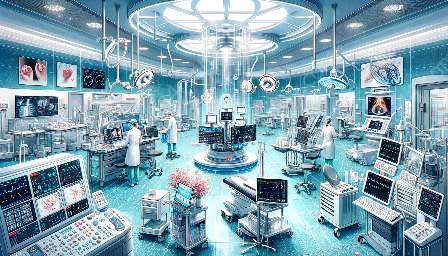Biotechnology and medical devices have come together to revolutionize healthcare, paving the way for impactful societal changes. The integration of biotechnology into medical devices brings forth a host of opportunities and challenges, ranging from improved patient care to ethical considerations. Let's delve into how this convergence is reshaping societal norms and expectations.
The Advantages of Biotechnology-Integrated Medical Devices
Biotechnology-integrated medical devices offer a range of advantages for society as a whole:
- Enhanced Patient Care: By leveraging advanced biotechnological tools, medical devices can provide targeted and personalized treatment options, leading to improved patient outcomes.
- Improved Diagnostics: The integration of biotechnology into medical devices has enhanced diagnostics, enabling early detection and accurate monitoring of diseases, ultimately leading to better disease management.
- Technological Innovation: Biotechnology has allowed for the development of cutting-edge medical devices, such as implantable sensors and drug delivery systems, which have the potential to transform healthcare practices.
- Cost-Effective Solutions: Biotechnology-integrated medical devices have the potential to offer cost-effective solutions for healthcare delivery, making advanced treatments more accessible and affordable.
Societal Impacts of Biotechnology-Integrated Medical Devices
1. Ethical Considerations:
The integration of biotechnology into medical devices raises ethical dilemmas related to privacy, consent, and the use of genetic information. Society must grapple with the implications of storing sensitive biological data and the potential misuse of such information.
2. Economic Changes:
The widespread adoption of biotechnology-integrated medical devices could lead to a shift in healthcare economics, impacting insurance coverage, reimbursement policies, and overall healthcare expenditure patterns.
3. Regulatory Challenges:
Introducing biotechnology-integrated medical devices necessitates robust regulatory frameworks to ensure safety, efficacy, and ethical usage. Policymakers, healthcare professionals, and industry stakeholders will need to address the complexities of regulating these advanced technologies.
4. Healthcare Disparities:
While biotechnology-integrated medical devices hold promise for improved healthcare, there is a risk of exacerbating existing healthcare disparities if access to these technologies is unequal. Bridging the gap in access and affordability is crucial for ensuring equitable healthcare outcomes.
The Future of Biotechnology-Integrated Medical Devices
As biotechnology continues to advance, integrated medical devices are poised to play a pivotal role in shaping the future of healthcare. However, careful consideration of the societal impacts is essential to ensure that the benefits are maximized and the potential drawbacks are mitigated.
Conclusion
The convergence of biotechnology and medical devices has the potential to bring about significant societal impacts. From improving patient care to addressing ethical and regulatory challenges, the integration of biotechnology into medical devices demands thoughtful consideration and proactive decision-making to harness its full potential for the betterment of society.


